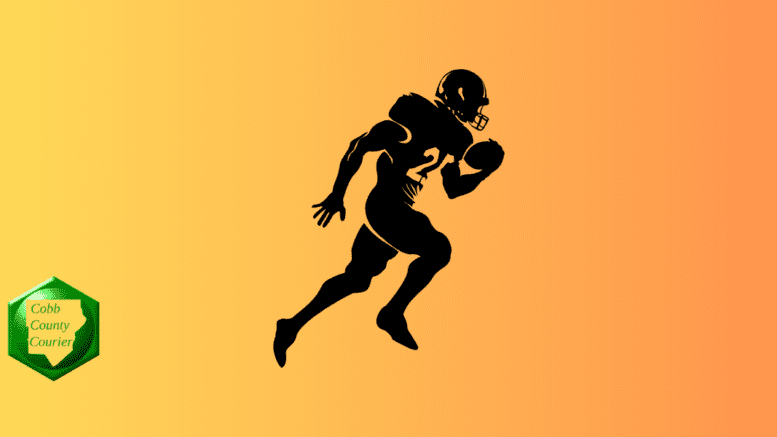By John A. Tures, Professor of Political Science, LaGrange College
During the epic Top-Ten college football matchup between the University of Georgia and the University of Texas, unruly fans used their dangerous behavior to try and influence a call, and succeeded. Until the NCAA steps in, it will happen again and again until someone is seriously injured or killed. The success of the thuggish fan behavior in hurling bottles onto the field of play to get a call changed guarantees that it will happen again.
Blake Toppmeyer of USA Today wrote what happened while Georgia led 23-7 in Austin, Texas. “Here’s how it all went down: Barron intercepted a Carson Beck pass in the third quarter and returned his prize to the Georgia 9-yard line. But wait, a flag rested on the field. Three officials huddled to discuss the penalty for about 20 seconds, before head referee Matt Loeffler announced the call: Defensive pass interference on Barron. No interception. First down, Georgia.”
Toppmeyer followed with this. “Texas fans howled. Contact occurred between Georgia receiver Arian Smith and Barron, but the replay appeared to show Smith initiated the contact. The replay showed in the stadium multiple times.”
Then the Texas fans hurled bottles onto the field. While people tried to clean up the trash, “Referees conferred and reversed a controversial pass interference call in the second half of Saturday’s Georgia-Texas game. That’s allowed. That they changed their mind about the penalty after fans interrupted the game by trashing the field, though, came as a unique and shocking twist. It gave the appearance that the refs caved to unruly fans,” Toppmeyer wrote.
Appearance? It looked 99% like the refs caved to the “public pressure” of angry Longhorns fans. Pass interference calls are nonreviewable, by the way, and we would have to make the heroic assumption that while it took a lengthy amount of time to clear the field, the refs weren’t looking at the giant replay on the scoreboard. The refs had already walked off the yardage when the ugly pelting of the field commenced and now conducted an unprecedented reversal.
“I find it highly improbable that the weekend’s most controversial call would have been reversed if not for how Texas fans reacted to the initial penalty,” Toppmeyer added, noting that Brown said “Yeah, probably,’ Barron said, when asked whether he thought the crowd’s response influenced the call reversal. ‘Most likely.’” Texas scored, and the Longhorns had all the momentum, with the score now just 23-15, whereas it was once 23-7 with the Bulldogs near midfield. It was a gamechanger, and set a horrific precedent for sporting events.
Georgia recovered from this travesty of justice, and kept Texas scoreless, adding a touchdown of their own. If they hadn’t, we would have seen the first case of fans 100% winning a game by trashing a field.
The SEC responded by fining Texas $250,000, insisting the school find and punish those responsible by not letting them go to any more football games, and….not much else.
That’s not going to deter Texas, or any other fan base, who can now see the power in their grasp to help a team win, with little chance of retribution. I doubt many fans will be punished.
The SEC said they wouldn’t suspend alcohol sales at Texas events, but might do so in the future.
So much for the “tough guy” image of the conference, in caving to the rabble. An alcohol ban would have been a more telling punishment, as Texas makes more than a million dollars in sales from alcohol, according to research by the NCBI in the PMC (Ruehlmann et. al. 2023). In addition to a loss of revenue, it would have made fellow Texas fans restrain those hurling junk, instead of perhaps egging them on, knowing what was at stake.
Previously this month, Oregon took a “12 men on the field” penalty to lose five yards but take four precious seconds off the clock in a college football victory over Ohio State. By Wednesday after the Saturday game, the NCAA already had a rule that closed that loophole. And that was a technicality that injured no one. Hurling bottles on a field is a far more serious matter.
Such behavior will continue until the NCAA steps in, given the SEC’s relatively weak penalty administered to Texas. And next time, it won’t just change a game’s outcome. An innocent person in the stands or on the field while be struck, resulting in serious injury or death. And we will wonder whether something more should have been done to stop some senseless behavior.
John A. Tures is a professor of political science at LaGrange College in LaGrange, Georgia. His views are his own. He can be reached at jtures@lagrange.edu. His “X” account is JohnTures2.
